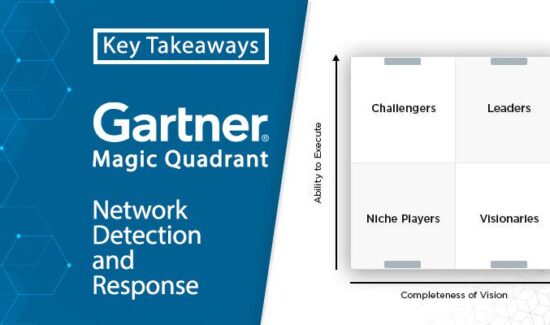Here is Why Endpoint Security is Important For Your Enterprise


Why is endpoint security important? What facts and capabilities should you be aware of when selecting an endpoint security solution? What threats does your enterprise need to stay aware of during this critical time?
This October, we enter into the 16th Annual National Cybersecurity Awareness Month. Unfortunately, evidence suggests enterprises continue to struggle with their cybersecurity. According to endpoint security solution provider Bitdefender, around 57 percent of enterprises experience a breach in the last 3 years. Additionally, 24 percent of businesses suffered a breach halfway through 2019.
But why? Why do these breaches keep happening? What threats make endpoint security important to your business?
Key Statistics on Why Endpoint Security is Important
According to Absolute, 70 percent of all breaches still originate at the endpoint. Additionally, over 42 percent of endpoints experience encryption failures. Moreover, 19 percent of endpoints on average require at least one client or patch management repair every month.
According to AttackIQ, only 41 percent of enterprises feel their IT security team can effectively determine gaps in their security infrastructure. Meanwhile, a full 75 percent say their IT security team can’t respond to security incidents within one day.
Also, Vailmail found enterprises globally receive 3.4 billion fake emails every day; simultaneously, 90 percent of large tech companies prove vulnerable to email spoofing. Bitdefender found the most concerning threats to businesses include phishing, trojans, and ransomware.
But what does all of this mean for your enterprise? How do these statistics indicate relevant threats facing your enterprise?
Let’s dive deeper!
What Threats Ultimately Face Your Enterprise
Once upon a time, enterprises only needed to worry about their antivirus protection. After all, back in the earliest days of cybersecurity, enterprises only needed to worry about malware.
Granted, malware still negatively impacts enterprises. However, the threat landscape continues to evolve; often, it evolves too fast for any antivirus solution to handle independently. Also, while hackers may still use traditional malware attacks, they increasingly use other tactics to penetrate networks. For example, an insider threat could use an infected USB drive to plant a virus directly onto an endpoint.
Alternatively, they could use a fileless malware attack to quietly infiltrate your network and exploit your native processes. Even cryptocurrency mining malware behaves quite differently from the earliest versions of malware.
Additionally, the number of potential attacks coming from emails—phishing attacks included—can overwhelm most antivirus solutions. In fact, antivirus solutions struggle with data traffic and moving components of IT infrastructures such as applications and ports.
These appear—and are—serious issues. But it is exactly why endpoint security is important for your enterprise.
Modern Endpoint Security is Important
First, modern endpoint security does feature anti-malware protection; while it may not represent the primary threat to your enterprise in a direct sense, they still constitute a real danger. Ransomware can still damage if not destroy your workflows and databases, and cryptocurrency mining malware can damage your internal processors. Fileless malware could steal finances and data without triggering monitoring protections.
However, endpoint security is important for far more than its antivirus prowess. Indeed, other key capabilities add to endpoint security’s importance. For example, endpoint security can help regulate data traffic through data loss prevention; this monitors ingoing and outgoing communications for sensitive data—data which should not leave your enterprise.
Moreover, endpoint security can exhibit email security. This prevents malicious emails from reaching your employees in the first place, keeping phishing emails from negligent users. Simultaneously, email security works with a next-generation firewall to help protect against malicious traffic. Next-generation firewalls can actually examine the messages of possible malware and discover them in real-time.
Additionally, endpoint security provides port control and application control capabilities, both of which prove essential to modern cybersecurity. Port control monitors the USB and other connecting ports to ensure viruses and other attacks don’t penetrate through there.
Meanwhile, application controls prevent applications from moving from endpoint to endpoint without monitoring. These keep data centralized on key endpoints without unwarranted movements and limit digital infection spreads.
You Can’t Neglect EDR!
Endpoint detection and response (EDR) might be one of the most critical capabilities in understanding why endpoint security is important. In fact, Gartner calls EDR one of the most critical capabilities in modern endpoint protection platforms.
EDR operates in a manner similar to SIEM, another branch of cybersecurity. EDR monitors your endpoints and databases for malicious activity internally; it seeks out threats that may have penetrated your enterprise network.
Then, EDR can alert your security team to potential security incidents and block potential security events. As such, it can help facilitate investigations into security incidents and thus improve remediation efforts.
How to Learn More
This article scratches the surface of why endpoint security important for your enterprise cybersecurity. To learn more, you should check out our 2019 Endpoint Security Buyer’s Guide. We cover the key solution providers in the endpoint protection market and their key capabilities. Also, we offer a Bottom Line analysis for each one.




















